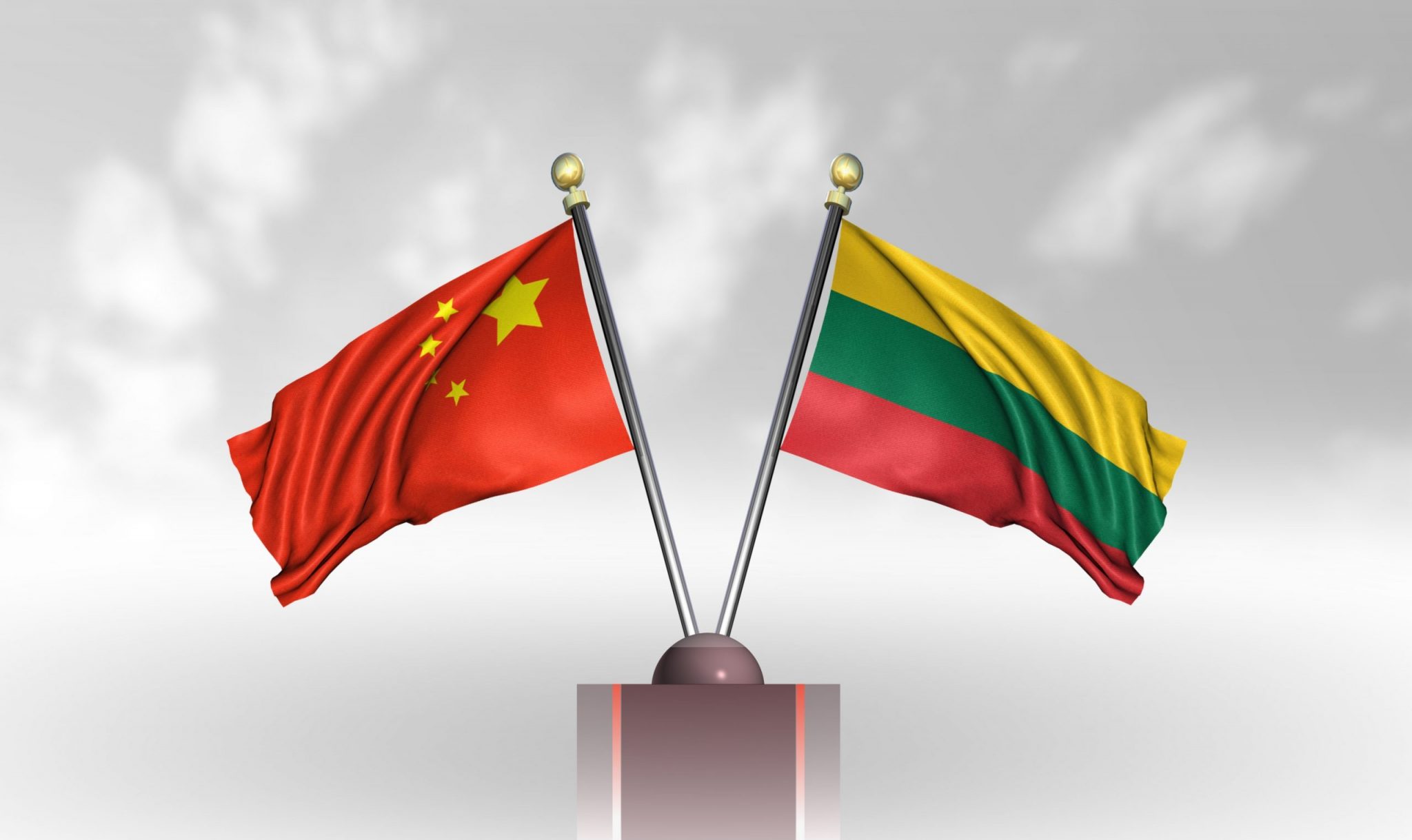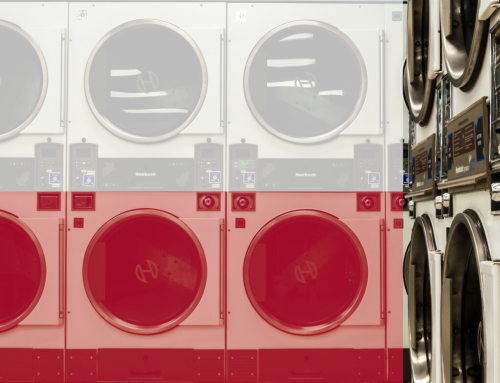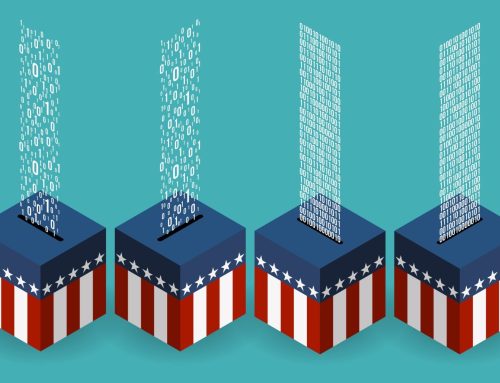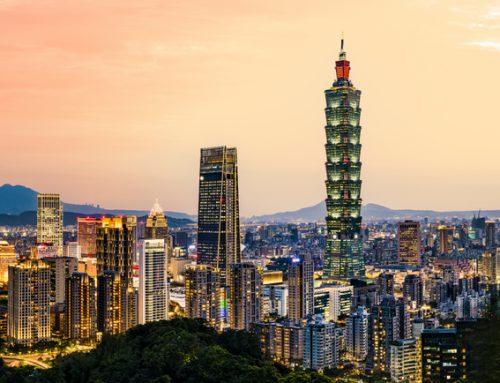China’s comprehensive sanctions regime against Lithuania underlines the grave need for Europe to bolster its resilience to economic coercion. As EU officials begin the process of adopting the Anti-Coercion Instrument (ACI) and other strategies to protect trade interests, understanding China’s actions is the key to adapting to the age of weaponized trade.
Introduction
To understand the current state of Sino-Lithuanian relations, one must understand the shift in Sino-European relations. A dovish relationship focused on trade and global cooperation has become more hawkish. European officials are beginning to synchronize with the United States’ focus on human rights, defending the liberal world order, and upholding a “Free and Open Indo-Pacific.”1
This shift became more noticeable due to the United States’ campaign to block Huawei equipment from being installed in European telecommunication networks and the US-China trade war during the Trump Administration.2 The shift continued through the Covid-19 pandemic. Economic restrictions by Western powers targeted the government of the People’s Republic of China (PRC) and Chinese Communist Party (CCP) entities and individuals in the western region of Xinjiang, statements called out reported human rights abuses in Hong Kong, and several European militaries increased their forward presence in the Indo-Pacific, albeit mostly in symbolic fashion.3 The chill that has swept over Sino-European relations has been most acute within the various countries of Central and Eastern Europe (CEE). The state of relations now varies from country to country; some nations retain closer ties to Beijing while others face a breakdown of ties altogether.4
It is under this backdrop of Sino-European relations that the deterioration of Sino-Lithuanian relations came to a head in 2020. In April that year, about 200 Lithuanian politicians expressed to President of Lithuania Gitanas Nausėda their desire for the government to support Taiwan’s involvement in the World Health Organization.5 Lithuanian politicians had already praised Taiwan’s effective handling of the Covid-19 pandemic and the 100,000 facemasks that Taiwan donated to Lithuania earlier that same month.6
Closer informal diplomatic relations between Lithuania and Taiwan led to Lithuania’s desire to pull out of the 17+1 China-CEE countries cooperation framework, thus creating the 16+1 cooperation framework in its place, and an eventual breakdown in Sino-Lithuanian diplomatic ties.7 These actions were followed by fellow Baltic states, Estonia and Latvia, which also left the cooperation framework in August 2022.8 In addition, Lithuania allowed Taiwan to open a representative office in Vilnius using the name “Taiwan” instead of “Taipei.”
In reaction, China launched its most comprehensive sanctions regime against an individual country to date and began pressuring companies registered in other European Union member state countries to stop doing business in Lithuania.9 These actions against Lithuania and the European Common Market could serve as the first instance where the EU’s Anti-Coercion Instrument (ACI) is utilized. And given China’s de facto ban on trade with Lithuania, the small Baltic state could be viewed as a test case of future economic coercive measures against other EU member states that push back against China’s geo-strategic interests like the isolation of Taiwan.
Relations between China and EU member states have worsened because of Russia’s invasion of Ukraine. The Sino-Russian relationship of “friendship without limits” has made many officials across European capitals nervous towards China.10 This nervousness stems from China’s unwillingness to condemn Russia for its actions, fears that China could aid Russia in some way, and Russia’s willingness to amplify China’s disinformation messaging after US Speaker of the House Nancy Pelosi’s visit to Taiwan in August 2022. Additionally, European sanctions against Russia provide China information on the EU’s sanction response mechanisms to crises.
Through a series of questions divided into two parts, this report examines how the Chinese government sanctioned Lithuania and used secondary sanctions in service of their geopolitical goals. The first part of this report explains the actions of the Chinese government and the second part explains the EU’s use of the ACI to blunt future economic punitive actions against the European Common Market.11 A third section of the report provides four policy recommendations to European leaders on how to respond to future instances of economic coercion by large countries like China.
- https://www.eeas.europa.eu/sites/default/files/eu-indo-pacific_factsheet_2022-02_0. pdf pg. 2 ; https://www.europarl.europa.eu/news/en/press-room/20210701IPR07521/human-rights-breaches-in-hong-kong-saudi-arabia-and-iran
- https://www.euractiv.com/section/digital/news/eu-countries-keep-different-ap-proaches-to-huawei-on-5g-rollout/ ; https://www.politico.eu/article/eu-us-trade-war-truce-import-tariffs-steel-aluminum-g20-summit-2021-china/
- https://webgate.ec.europa.eu/fsd/fsf/public/files/pdfFullSanctionsList/con-
tent?token=dG9rZW4tMjAxNw pg. 117-18 ; https://www.eeas.europa.eu/eeas/
hong-kong-statement-high-representativevice-president-josep-borrell-chang-
es-hong-kong%E2%80%99s_en#:~:text=International%20cooperation%20%26%20 partnership,more%20prosperous%20and%20equal%20world ; https://www. reuters.com/world/first-german-warship-almost-two-decades-enters-south-china-sea-2021-12-15/
- https://www.scmp.com/news/china/article/3173066/viktor-orbans-landslide-re-elec-tion-paves-way-even-closer-hungary-china ; https://www.rferl.org/a/where-chinese-influence-is-rising-and-falling/31899089.html
- https://www.lrt.lt/en/news-in-english/19/1166291/lithuanian-presi-
dent-doesn-t-back-taiwan-s-who-membership-aide - Ibid.; https://www.lrt.lt/en/news-in-english/19/1162181/taiwan-donates-100-000-face-masks-to-lithuania
- https://www.politico.eu/article/lithuania-pulls-out-china-17-1-bloc-eastern-central-eu-rope-foreign-minister-gabrielius-landsbergis/ ; http://www.china-ceec.org/eng/
- https://apnews.com/article/russia-ukraine-putin-taiwan-china-beijing-24a51164e-0b0a849c33b83dcc92fb1e1
- https://www.cfr.org/blog/analysis-chinas-economic-coercion-against-lithuania
- https://www.wsj.com/articles/china-russia-xi-putin-ukraine-war-11646279098
- https://twitter.com/joeabodnar/status/1555161757991174145






